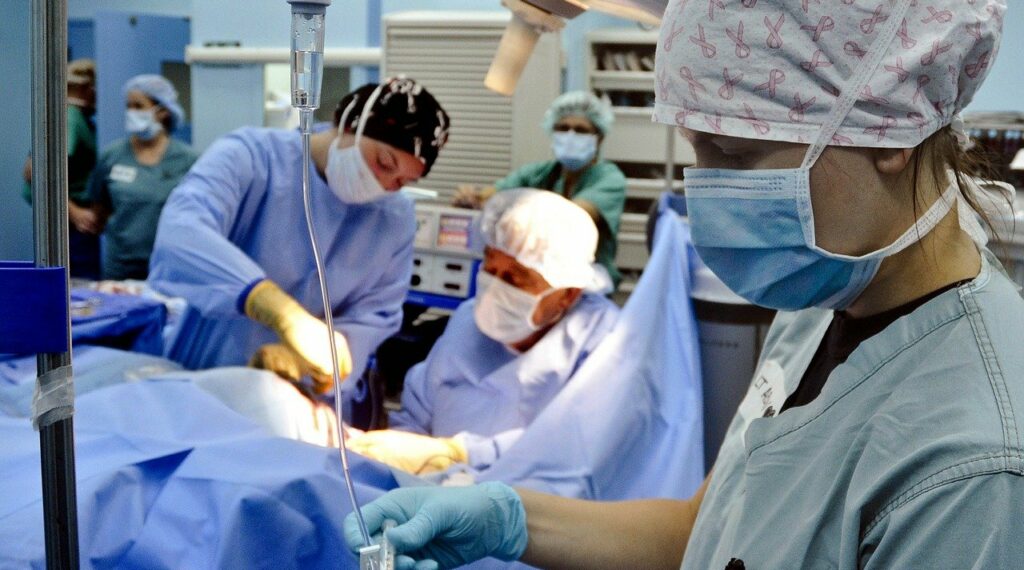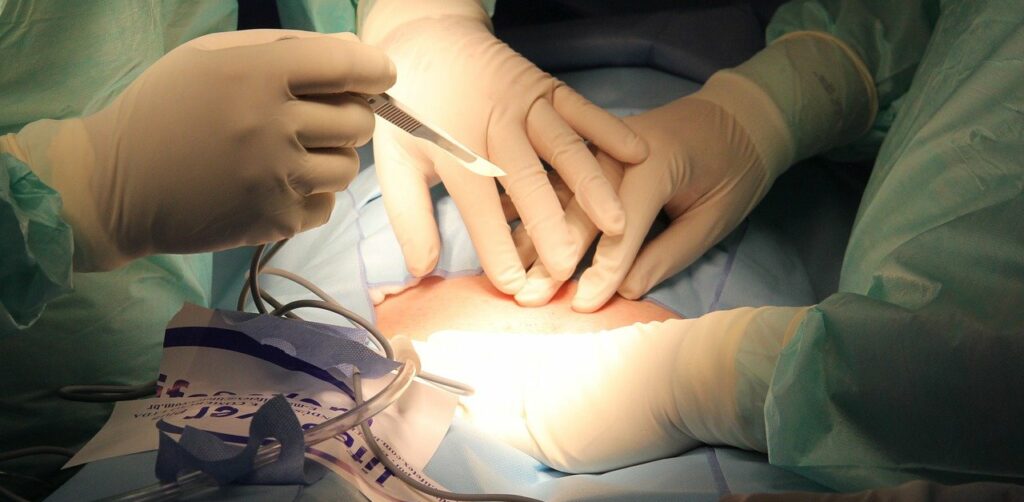Clinical experience is an important aspect of the medical school application so there comes a time when you need to decide what you will do to gain some of this experience.
While both medical scribing and being a CNA are excellent clinical experiences for medical school, becoming a CNA can help you stand out among the application pool. Working as a CNA allows you to provide direct patient care and develop a bedside manner that medical schools seek in their applicants.
But there are still drawbacks to becoming a CNA and for some people, it still may be better to become a scribe. In fact, that’s what I did. Being a scribe still gave me valuable experience that helped me get into medical school.
To give you the most useful information when determining whether to become a medical scribe or a CNA we surveyed 59 premed students to see what they recommend and why.
Should I Scribe Or Be A CNA Before Medical School? (We Surveyed Premed Students To See What They Recommend)
As you can see, the opinion about whether or not you should be a scribe or a CNA is right down the middle. But we did get some valuable insights.
- Scribing is harder work and pays less, but you gain a lot more medical knowledge pertanent to being a physician.
- CNAs give you experience through the lens of a nurse which can be beneficial.
- Less premed students become a CNA due to certification requirement which could make you stand out from competition.
Which Position Has More Patient Interaction: Scribe Or CNA
Hands down, you will have a lot more patient interaction as a CNA than you would as a scribe. In fact, you probably won’t have any patient interaction as a scribe unless you work in a private clinic with a physician that utilizes their scribe for some basic care of the patient.
As a CNA you will have a ton of experience with patients who need your help. This is especially evident with most CNA entry-level positions at long-term care facilities. Geriatric care involves a lot of intimate care which can be rewarding and demanding.
Walking, cleaning, and comforting older patients will demonstrate to medical schools that you care about others.
Which Position Involves More Interaction With Physicians?

Becoming a medical scribe will allow you to be around physicians constantly. You will observe everything they do and record all the necessary patient information in their electronic charts. On the other hand, most of the time CNAs will have little to no interaction with physicians.
CNA, or certified nurse assistant, will work closely with nurses. Although direct interaction with physicians is beneficial for somebody who plans to attend medical school, there is value to being around nurses.
Nurses have plenty of medical knowledge to share and you will gain valuable insight on the nurse side of the physician-nurse relationship. There can be a disconnect between these two professions so the ability to empathize with the other side will help with future collaborations.
What Do Medical Schools Prefer To See On Your Application: Medical Scribe Or CNA?
There is not a clear answer as to whether medical schools prefer to see scribing or being a CNA on your application. It really depends on the individual’s application.
The largest benefit of scribing is that you get to experience the day in the life of a physician. But If you have a lot of physician shadowing experience under your belt, it will look better to have more diversity with your application and work as a CNA.
Conversely, if you haven’t had any interaction with a physician at work, medical schools might be a little bit concerned that you haven’t really seen what it is like to be a physician.
Of course, there are hundreds of things that affect your medical school application and it is hard to say whether or not one position will increase your chances of getting in versus another. However, because scribing is much more common than working as a CNA before medical school, one can reason that being a CNA will give you a competitive edge.
As a CNA you will be doing less glamorous jobs, but these kinds of jobs really show a great commitment to patient care. Medical schools love students who are committed to patient care.
Being A Medical Scribe Will Allow You To See More Medical Procedures
I mentioned that being a medical scribe gives you more physician interaction than being a CNA. Because of this, a scribe has the unique opportunity to observe all kinds of medical procedures.

When I worked as a scribe in the ER, I saw intubations, chest compressions, code blues, abscess removals, and much more. I was there in the patient’s room during all of these procedures so that I could take accurate notes.
These kinds of experiences can be highly motivational which is a great benefit to scribing.
Is Easier To Become A Medical Scribe Or A CNA?
Becoming a medical scribe is a much faster and easier process. Being a scribe requires no certification, you simply apply for a job and they will train you.
Most scribes start with a larger scribe company to gain experience. These companies hire new scribes all the time so they are used to providing a training course to get you up to speed.
Even though getting a job as a scribe is relatively easy, the learning curve can be challenging. Learning how to take notes in a computer system as a doctor takes time.
Becoming a CNA, on the other hand, requires a certification. This takes around 9 months to complete and you must take a credentialing examination.
The training course for a CNA should be no problem to complete for your average premed student. The exam, from what I hear, is relatively easy.
However, the cost of becoming a CNA can be pricey, I’ve heard of courses costing up to $1000. According to some premeds who became CNAs, some hospitals give you the opportunity to have paid training as a CNA. You would need a shoe in the door, such as a volunteer gig at the same hospital.
Which Job Has More Flexible Hours For A Full Time College Student?

With little experience, getting a CNA part-time job is very difficult. Scribing on the other hand is a lot more flexible. Scribe companies work with premed students all the time, so they try to be flexible.
My company had a shift trading board so that we could drop our shifts when something came up and someone else could pick it up. Also, most scribes will work in a hospital environment that schedules scribes around the clock. This lets students work during odd hours that are not during class time.
If you plan to become a CNA, consider getting a job over the summer when you can devote a full-time schedule to the facility. This is also a great job for any premed student considering a gap year!
Job Opportunties for Scribes and CNAs
Most premed students will start their first medical scribe job with a larger scribing company. In busier areas, these scribing companies are almost always hiring. The biggest downside, however, is that they pay peanuts.
Scribing companies know that premed students are becoming scribes for extracurricular experience, so they take advantage of this.
Your first scribing job will most likely be in an emergency room setting but there are opportunities with the larger scribe companies to work with internal medicine doctors in the in-patient realm.
After gaining experience, it is common for premed students to seek jobs with private clinics that pay much better than your large scribing company.
Although most CNAs will start in a long-term care facility, there are opportunities to move on to hospital-based jobs such as an ER tech or surgical tech after gaining experience.